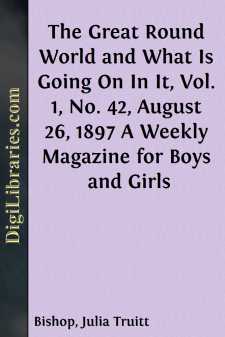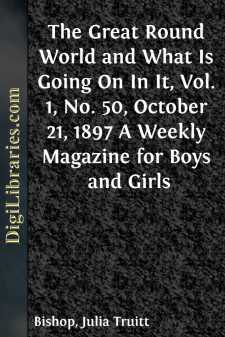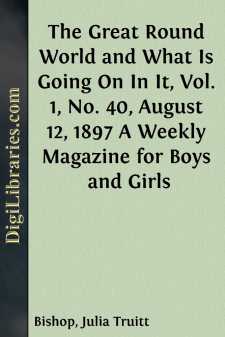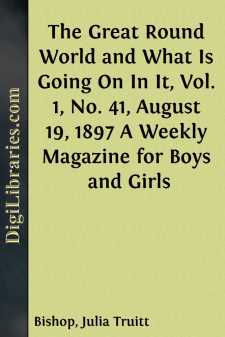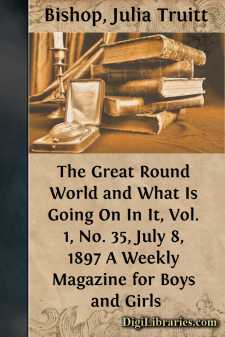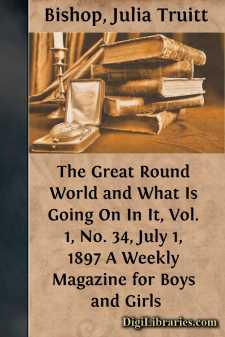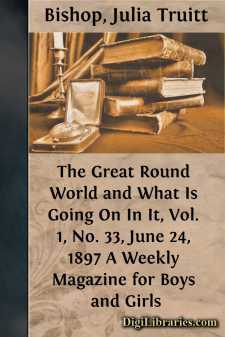Categories
- Antiques & Collectibles 13
- Architecture 36
- Art 48
- Bibles 22
- Biography & Autobiography 813
- Body, Mind & Spirit 142
- Business & Economics 28
- Children's Books 17
- Children's Fiction 14
- Computers 4
- Cooking 94
- Crafts & Hobbies 4
- Drama 346
- Education 46
- Family & Relationships 57
- Fiction 11829
- Games 19
- Gardening 17
- Health & Fitness 34
- History 1377
- House & Home 1
- Humor 147
- Juvenile Fiction 1873
- Juvenile Nonfiction 202
- Language Arts & Disciplines 88
- Law 16
- Literary Collections 686
- Literary Criticism 179
- Mathematics 13
- Medical 41
- Music 40
- Nature 179
- Non-Classifiable 1768
- Performing Arts 7
- Periodicals 1453
- Philosophy 64
- Photography 2
- Poetry 896
- Political Science 203
- Psychology 42
- Reference 154
- Religion 513
- Science 126
- Self-Help 84
- Social Science 81
- Sports & Recreation 34
- Study Aids 3
- Technology & Engineering 59
- Transportation 23
- Travel 463
- True Crime 29
The Great Round World and What Is Going On In It, Vol. 1, No. 42, August 26, 1897 A Weekly Magazine for Boys and Girls
Categories:
Description:
Excerpt
The most important news of the past week is the step which Great Britain has taken in breaking off the commercial treaties with Germany and Belgium, which have been in effect since 1865.
By the terms of these treaties, Great Britain gave her word that no articles manufactured in either of these countries should be charged higher tariff duties in her colonies than similar articles of British manufacture.
For instance, on German and Belgian cloth, exactly the same duty is charged in Canada and Australia and the colonies generally as on the English cloth. You would have supposed that England, being the mother country, would have been charged a lower tariff than foreign countries, but according to the treaties this was impossible.
By breaking these treaties it has, however, become possible for Great Britain to make arrangements whereby her merchandise can be introduced into her colonies on terms that are very favorable to herself.
In taking this step England is only closing the last chapter of a volume of her history, and when she makes her new treaties with her colonies she will be commencing the first chapter of the new history of the British Empire that is yet to be written.
This matter is of such vast importance, in the bearing that it will have on the future, that we must try our best to understand it.
England's importance and wealth lie in her colonies. She is but a "right little, tight little island" of herself; but when regarded from the standpoint of her possessions, her territory covers about one-sixth of the land surface of the globe (see map, page 1189). Her possessions lie north, south, east, and west, till it is rightly said that "the sun never sets on England's glory."
The shaded portions are British possessions. Islands owned by Great Britain have names attached.All her various dependencies are self-governing. They have their own legislatures, impose their own taxes, and manage their own affairs socially, politically, and commercially.
At the same time, the colonies are absolutely a part of the British Empire. The lands belong to the Crown, and the Crown derives an income from the profits of the colonies.
Though the legislature is made up of representatives chosen by the people, the governor of each province or colony is appointed by the Crown, and governs in the name of the Queen.
The local governments can make what laws they please, but any act of the colonial parliament that is obnoxious to England can be annulled by the British Parliament.
While England endeavors to make the colonies independent, she also insists on their being obedient. She maintains armies to protect them, stands ready to advance the young colonies money for their development, and rules them in a kindly and beneficent way.
There is no question of taxing and draining the resources of the country for the sake of gain, as in the olden days, or as Spain does at the present; the English policy since Victoria came to the throne has been to develop and improve the colonies and make them self-supporting and independent.
The colonies are represented in the British Parliament by the Colonial Secretary, who is a Cabinet officer, and holds one of the most important positions in the Government....


